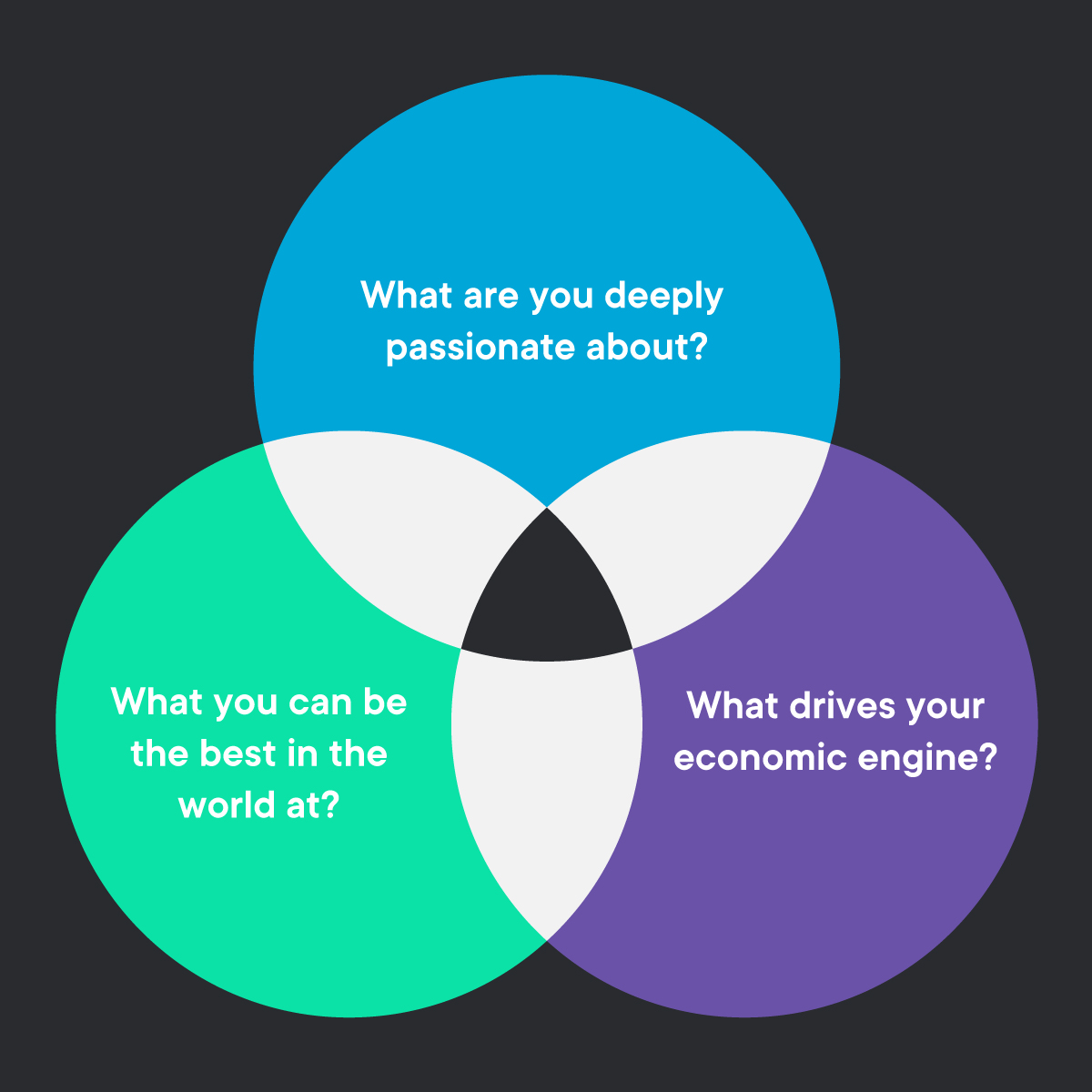This story is part of a series of articles on “Seven Pathways to Strategic Thinking” written by Nigel Malone, Strategy Director at Archetype. If you would like to receive a notification when the next article is published, register here.
The more you work in the field of strategy, the more types of strategy you realise there are – Marketing, Brand, Comms, Creative, Media. The list goes on. The more experience you get, the more you realise there’s one type of strategy that drives them all – and that’s ‘Business Strategy’.
One slide that falls firmly into the category of ‘Business Strategy’, that I find particularly useful in new client workshops, is called the ‘The Hedgehog Concept’. Developed by Jim Collins, after studying hundreds of businesses to determine the difference between the good and the great, the ‘Hedgehog Concept’ is an exercise in finding your business focus.
There are no hedgehogs native to Australia so this concept may seem a little foreign, but rather than being a ‘fox’ that is always scavenging for everything and anything in terms of prey, Jim’s research revealed that it’s far better for businesses to keep it simple and be great at one big thing — much like the hedgehog, that when under threat rolls itself into a tight impenetrable ball.
“The fox knows many things, but the hedgehog knows one big thing.” Isaiah Berlin
So how do you find a business’s ‘Hedgehog Concept’? In a workshop scenario, you would lead and assist the client, preferably top management and ideally the CEO, to answer the following three questions:
1. What are you deeply passionate about?
2. What can you be the best in the world at?
3. What drives your economic or resource engine?
At the intersection of these three questions/circles lies the Hedgehog Concept.

Remembering the aim is to find focus – a key characteristic of great companies – so the more specific a client can be with their answers, the more value gained from the exercise. It’s vital the person leading the workshop knows how to ask the questions correctly and plays devil’s advocate, challenging soft or vague answers.
Let’s dive into the questions, to learn what we are really looking for…
1. What are you deeply passionate about?
Passion is a massive motivator and force multiplier when it comes to achieving big goals. There’s only so many passions we can tackle at any one time unless we are Elon Musk, so it’s important to focus in on the core or overarching passion.
The breadth of answers we are looking for here might span: childhood education; cybersecurity threats; round the world sailing; 3rd world poverty; adult obesity; internet networking; aboriginal culture, home energy efficiency, adventure travel, workplace wellbeing.
The point of this question is to be crystal clear about what’s at the core of your mission, the area in which you are most passionate and wish to make the biggest impact.
2. What can you be the best in the world at?
A Hedgehog Concept is not a goal or plan to be the best. It’s a clear understanding of what you can be the best at. The distinction is absolutely crucial and is central to the difference between good and great companies.
Naturally, every company would like to be the best at something, but few actually understand – with piercing insight and egoless clarity—what they actually have the potential to be the best at – and just as importantly, what they cannot be the best at.
Here’s a few sample answers to the questions.
The world’s number provider of Internet building blocks (Cisco)
The leading provider of Lawtech in Asia and the emerging markets (Thomson Reuters)
The most popular platform for Australians to trade on the NYSE (Stake)
The number one wearable tech for improving posture and back health (upright Go)
The point of this question is that great companies understand that doing what you are good at will only make you good. On the other hand, focusing solely on what you can potentially do better than any other organisation – is the path to greatness.
3. What drives your economic engine?
If you are a for-profit business, identify the key revenue streams that have the most significant impact on your financial bottom-line. If you are a social sector organisation, identify the key resources (volunteers, donation, grants, etc) required to fulfil your mission?
I’ll use the Hedgehog Concept slide on pretty much on every new start-up I encounter, but I find it’s useful to think about any business in this fashion. It’s surprising how many managers of mature businesses don’t have a simple, coherent focus they pursue with relentless consistency – and that gain far more from the exercise than I do, in understanding their businesses
When you get your Hedgehog Concept right, it has the quiet, powerful ping of truth, like a single, clear, perfectly struck note hanging in the air in the hushed silence at the end of a piano concerto. There is no need to say much of anything; the quiet truth speaks for itself.

